Supporting Atlantic’s Staff in its Final Phase
As The Atlantic Philanthropies began the final phases of closure, management knew that, as the largest limited life foundation to spend down its assets, it would be a model for the philanthropic sector, particularly to other foundations interested in the concept of limited life or “giving while living”. One example of this is Atlantic’s staff fellowship program which was launched in 2014 and gave staff the option to apply for 12-month Atlantic funded fellowships. Atlantic President and CEO Christopher G. Oechsli, noted “We had long known that our resources were not just financial, but human resources.”
Genesis of the Program
“If, as an enterprise, we’re interested in making a difference in the world, and our people are good at making that difference, wouldn’t we want them to continue working toward the impact we’ve been seeking? So the fellowships were an extension of Atlantic’s aspirations.” – Christopher G. Oechsli
Noting that Atlantic had a number of reasons for establishing staff fellowships, Oechsli said, “First, people do have experience that doesn’t stop having value just because Atlantic concludes its work. If, as an enterprise, we’re interested in making a difference in the world, and our people are good at making that difference, wouldn’t we want them to continue working toward the impact we’ve been seeking? So the fellowships were an extension of Atlantic’s aspirations. Even if our financial resources were ending, we wanted to continue to deploy the human resources to address the issues that matter to us. Also,” he said, “from a purely enterprise self-interest standpoint, you want to end well – gracefully and respectfully – and treating your people well is part of standing for how you do limited life successfully. That’s a reputational responsibility but also just the right thing to do.”
Atlantic knew that the expertise, intellectual capacity, skills and experience of its departing staff could be valuable contributions to its fields of programmatic interest. Multiple ancillary benefits were anticipated as well: organizations hosting former Atlantic staff would benefit by the addition of an experienced Atlantic employee to their work; its program fields would benefit from the retention of staff expertise; and fellows would benefit from the opportunity for further professional development, a period of transitional employment, wider networking, and the chance to make additional and broader contributions to the sector.
The formal policy made clear that:
- Advancing Atlantic’s programmatic interests was the main criteria for the awarding of fellowships.
- All staff would be eligible to apply for fellowships, but Atlantic did not guarantee fellowships.
- All staff would have equal access to fellowships, but Atlantic acknowledged that for a variety of reasons individual opportunities might vary.
- The fellowship role and/or project at the host organizations would be substantive and impact oriented.
- The fellowships could be full or part-time and funded by Atlantic for up to 12 months.
- Atlantic and its staff had to remain sensitive to their position in relation to grantee organizations and avoid the appearance of, or any actual, conflict of interest.
- In order to mitigate the potential for conflict or undue pressure, employees were asked not to approach potential host organizations without prior discussion and agreement of their manager so that any possible issues could be surfaced and resolved first.
Fellowships were subject to a Memorandum of Understanding among Atlantic, the host organization, and the fellow, which included provisions about confidentiality, work product, and jurisdiction, along with the following requirements:
- The proposal needed to outline a clear articulation of the role and work to be undertaken by the fellow, and confirm that the work would be directly related to: i) meaningful added value to Atlantic objectives, program goals, or related fields; ii) the skills and experience of the prospective Fellow while at Atlantic; and iii) a clear and evident benefit to the host organization.
- The prospective host and fellow needed to confirm that the arrangement was entirely voluntary and did not result from any financial influence associated with a past, current or future Atlantic grant or any financial support beyond that specifically associated with the fellowship.
- The Atlantic fellow would not displace an existing employee at the host and the host would be solely responsible for providing any requisite training and supervision.
- Fellows would provide a mid-year report of their activities and fellows and hosts would submit final reports at the conclusion of the fellowship, detailing the successes and challenges of the fellowship and how the work might be sustained beyond the fellowship term.
- Atlantic would pay up to the full cost of the fellowship, to include the salary and benefits which applied at the host organization, plus projected and pre-approved expenses, but generally not overhead or other non-cash or fixed costs. The salary and benefits of the fellow would be consistent with those applicable to comparable employees at the host organization (or, in the absence of comparable employees at such organization, to comparable employees at comparable organizations in the respective geography).
At the conclusion of the fellowship, the host organization would have no obligation to retain the fellow but could choose to hire the fellow at its own expense.
The policy proved remarkably durable; only two adjustments were made to the original policy. First, the policy was adjusted in the case of senior-level placements. Initially intended to cover 100% of the fellowship costs, the policy was adjusted to cap the maximum at $200,000. Atlantic also reserved the right to request a host contribution of up to 20 percent from particularly large or well-resourced organizations.
Second, the policy was adjusted to take into account the possibility of early departures by fellows as a result of job opportunities that arose during the fellowship. It was important for the fellow and the host organization to commit to “reciprocity of obligation”: organizations would be counting on the fellows to fulfill their responsibilities before moving on and fellows would be looking for some flexibility and understanding if a job opportunity arose. Fellowship proposals would be submitted with every intention to complete the term of the placement, but fellows and host organizations would work together on an early transition if needed. In some cases, hosts designed the fellowship project with discrete “exit points” – such as workplans built around quarters of the year. In fact, only a handful of fellowships ended earlier than intended, and with intentional transition plans, host organizations were able to accommodate the early departures.
The fellowship was essentially the placement of a fixed-term hire without the benefits of a typical recruitment process which highlights the need for close and careful attention to the development and approval process. The factors considered included whether there was a compelling need for increased capacity at the host organization, and what those needs were; whether the skills and experience of the proposed fellow aligned closely with those needs; whether the host supervisor appeared genuinely interested and invested in the proposed work; and whether the proposed workplan included specific goals and deliverables that were realistically achievable within the timespan of the fellowship. Close supervision was especially important when the Atlantic fellow was pursuing a new position or field – in those cases, host organizations had to be prepared to provide some real-time training and mentorship in return for the other skills and experience the fellow brought to his or her role. Because of this, it was particularly important that the proposal accurately capture not only the intended goals of the fellowship but also the possible limitations of the placement.
Lessons for other limited life foundations
“Limited life is hard. Change is hard. There’s always anxiety in any transition. But recognizing and addressing it, and considering how to mitigate it thoughtfully, is important.”
Many limited life foundations will not be able to offer fellowships to departing staff but there are other useful lessons from Atlantic’s experience. “We were very lucky and privileged to have the resources to offer this program,” acknowledged Oechsli. “But, many of the lessons we learned were not resource-intensive. First,” he continued, “limited life is hard. Change is hard. There’s always anxiety in any transition. But recognizing and addressing it, and considering how to mitigate it thoughtfully, is important.”
Many of Atlantic’s successful approaches to retaining staff, promoting engagement and productivity, reducing stress, and maintaining morale were not dependent on financial resources – they were based on incorporating ongoing, two-way consultation with managers and staff and a collaborative approach to what the final phases of Atlantic would look like. Atlantic learned that it is critically important to: i) provide transparency about plans whenever possible; ii) give as much advance notice as possible and iii) communicate frequently. Transition support for staff was intended to help them prepare for their post-Atlantic lives, whether that meant new jobs, different careers, renewed study, volunteering, or retirement. The support was aimed at both their professional and personal lives and was provided via onsite workshops and third-party services covering outplacement, financial planning, and the emotional aspects of change. It was also important to provide capable, creative, and compassionate in-house HR support to coordinate and complement these resources. For organizations that want to offer a similar fellowship program but feel they don’t have the financial resources, Oechsli said, “Think of your people as integral to what you’re trying to accomplish even beyond their tenure and beyond the life of your foundation, and consider whether it would be in fact a good idea to re-allocate some of your resources.”
“The fellowships could be a way to give staff the space and opportunity to imagine what the next phase of their professional lives could look like, and that they could be given an opportunity to transition to that phase in a productive and satisfying way.”
Oechsli said Atlantic hoped to demonstrate that a foundation, “could end while being fair and leveraging the value of your human resources, that ending didn’t have to be something to be feared but that could be embraced and thought of as a positive way to conclude. That the fellowships could be a way to give staff the space and opportunity to imagine what the next phase of their professional lives could look like, and that they could be given an opportunity to transition to that phase in a productive and satisfying way.”
Staff Fellowship Host Organizations
Fellows worked for host organizations in the U.S., Northern Ireland, the Republic of Ireland, South Africa, Viet Nam and Bermuda, with many working across global geographies
412 Food Rescue ● Age Sector Platform ● Alabama A&M University’s Department of Social Work ● American Society on Aging ● American University’s School of Communication, Center for Media & Social Impact ● Bermuda Community Foundation ● Centre for Effective Services ● Columbia University, Atlantic Fellows for Racial Equity ● Community Foundation for Greater Buffalo ● Community Funds, Inc. ● Corruption Watch ● CUNY Graduate Center on Philanthropy and Civil Society ● The Daughters of Charity Child and Family Service ● Early Years ● Encore.org ● Fluxx ● Fordham University’s School of Law, Feerick Center for Social Justice ● The “I Have a Dream” Foundation ● InsideNGO ● The Katharine Howard Foundation ● Magnum Cultural Foundation ● National Crittenton ● New Venture Fund ● Nobel Women’s Initiative ● The Obama Foundation ● Our Lady’s Hospice ● Parenting NI Ltd. ● Physicians for Human Rights ● Planned Parenthood Federation of America, Inc. ● Poets House ● Resources for Health Equity ● Rockefeller Philanthropy Advisors ● Salisbury University ● Social Change Initiative ● Social Justice Initiative ● United Way of NYC ● University of California, Los Angeles ● University of Southern California, Center on Philanthropy and Public Policy ● The University of Florida’s College of Journalism and Communications, Center for Public Interest Communications ● University of Utah’s David Eccles School of Business, Sorenson Impact Center
By the numbers
49 fellowships
$6.7M USD cost to Atlantic
<0.01% of total grantmaking (US $8B):
Sample Fellowship Profiles
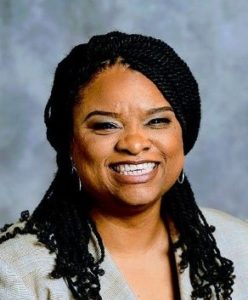 Allessia Owens-King served as a program intern in Atlantic’s DC office while pursuing her doctorate in
Allessia Owens-King served as a program intern in Atlantic’s DC office while pursuing her doctorate in  Social Work. During her post-Atlantic fellowship, she conducted a psychosocial follow-up study that built on her dissertation research, which focused on secondary trauma as experienced by social work caregivers assisting military service members and veterans with multiple chronic health conditions. The project was in alignment with
Social Work. During her post-Atlantic fellowship, she conducted a psychosocial follow-up study that built on her dissertation research, which focused on secondary trauma as experienced by social work caregivers assisting military service members and veterans with multiple chronic health conditions. The project was in alignment with  Atlantic’s commitment to improving the health of vulnerable groups, including older adults.
Atlantic’s commitment to improving the health of vulnerable groups, including older adults.
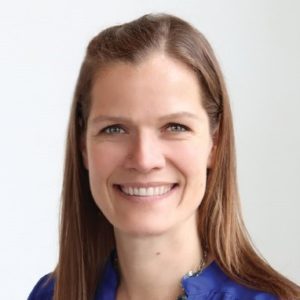 A former HR manager at Atlantic, Carisa White knew she would be relocating to Northern California after
A former HR manager at Atlantic, Carisa White knew she would be relocating to Northern California after leaving Atlantic and hoped that a fellowship could help her transition to a new area and introduce her to a local network of non-profits. Her fellowship placed her at the San Francisco office of Encore.org, a national non-profit building a movement to make it easier for millions of people to pursue encore careers – or “second acts for the greater good.” The nonprofit aims to build an experienced talent pool that can help solve society’s greatest social problems – “from education to the environment, health care to homelessness.” At the time of Carisa’s arrival, Encore.org didn’t have a devoted HR function, so Carisa was able to use her in-depth HR experience at Atlantic to develop and implement numerous necessary HR policies and processes. At the conclusion of her fellowship, Encore.org retained Carisa on a 60% schedule so that she could continue to provide critical HR support to the organization.
leaving Atlantic and hoped that a fellowship could help her transition to a new area and introduce her to a local network of non-profits. Her fellowship placed her at the San Francisco office of Encore.org, a national non-profit building a movement to make it easier for millions of people to pursue encore careers – or “second acts for the greater good.” The nonprofit aims to build an experienced talent pool that can help solve society’s greatest social problems – “from education to the environment, health care to homelessness.” At the time of Carisa’s arrival, Encore.org didn’t have a devoted HR function, so Carisa was able to use her in-depth HR experience at Atlantic to develop and implement numerous necessary HR policies and processes. At the conclusion of her fellowship, Encore.org retained Carisa on a 60% schedule so that she could continue to provide critical HR support to the organization.
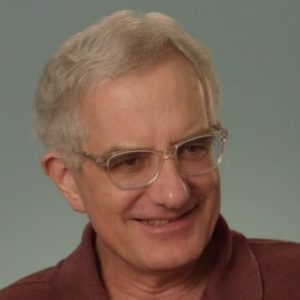 Communications consultant Bruce Trachtenberg, an executive producer and editor in Atlantic’s
Communications consultant Bruce Trachtenberg, an executive producer and editor in Atlantic’s 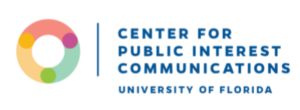 Communications department, was one of the more senior members of Atlantic’s staff who opted to pursue a post-Atlantic fellowship. “I had been following the work of the Center for Public Interest Communications at the University of Florida for some time,” said Bruce, “and knew that, despite their short-staffing and limited resources, the Center was making great strides pursuing their mission of helping improve communications practices among social change practitioners around the world. It’s a mission I believe in, and I felt I would be able help the organization by using the skills I had developed over a long career in foundation and nonprofit communications … including what I learned during my time at Atlantic.” While at the Center, Bruce helped manage and update the Center’s the website, adding new content and launching a new section featuring examples of the Center’s public scholarship. He served as a writing coach and mentor to several students interested in becoming regular contributors to the section of the website which summarizes findings from academic research that public interest communications professionals can apply to their work. He assisted with planning for the Center’s annual conference, recruiting several speakers knowledgeable about how emotions can advance progress on social change, its topic for 2020. And, using his foundation experience, he was able to help secure additional funding for the Center from three other foundations.
Communications department, was one of the more senior members of Atlantic’s staff who opted to pursue a post-Atlantic fellowship. “I had been following the work of the Center for Public Interest Communications at the University of Florida for some time,” said Bruce, “and knew that, despite their short-staffing and limited resources, the Center was making great strides pursuing their mission of helping improve communications practices among social change practitioners around the world. It’s a mission I believe in, and I felt I would be able help the organization by using the skills I had developed over a long career in foundation and nonprofit communications … including what I learned during my time at Atlantic.” While at the Center, Bruce helped manage and update the Center’s the website, adding new content and launching a new section featuring examples of the Center’s public scholarship. He served as a writing coach and mentor to several students interested in becoming regular contributors to the section of the website which summarizes findings from academic research that public interest communications professionals can apply to their work. He assisted with planning for the Center’s annual conference, recruiting several speakers knowledgeable about how emotions can advance progress on social change, its topic for 2020. And, using his foundation experience, he was able to help secure additional funding for the Center from three other foundations.
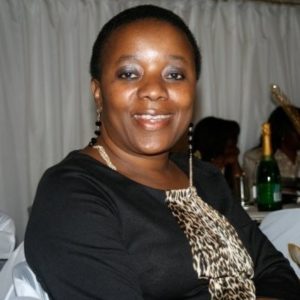 Viona Munjeri was a Program Associate in Atlantic’s Johannesburg office. “I knew that I wanted to pursue a
Viona Munjeri was a Program Associate in Atlantic’s Johannesburg office. “I knew that I wanted to pursue a 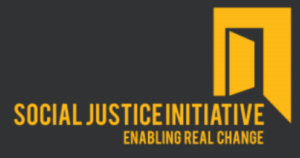 post-Atlantic fellowship,” she said, “because I wanted to continue being of service in the social justice sector in South Africa even after my time with Atlantic concluded. I wanted to continue sharing my over 20 years of experience in the development sector to smaller NGOs that need such support.” Viona began her fellowship with the Social Justice Initiative in Johannesburg with the intention of providing them with grants management support. SJI was a start-up NGO with very little institutional infrastructure, with the mission of undertaking advocacy and resource mobilization among high net worth individuals for social justice projects and programs. Working with SJI’s lawyers, Viona set up SJI’s financial, banking, investment and tax systems. She created SJI’s project database, provided support to its Working Group and Board, and managed events, while still providing program, advocacy and communications support, along with whatever grants management was required.
post-Atlantic fellowship,” she said, “because I wanted to continue being of service in the social justice sector in South Africa even after my time with Atlantic concluded. I wanted to continue sharing my over 20 years of experience in the development sector to smaller NGOs that need such support.” Viona began her fellowship with the Social Justice Initiative in Johannesburg with the intention of providing them with grants management support. SJI was a start-up NGO with very little institutional infrastructure, with the mission of undertaking advocacy and resource mobilization among high net worth individuals for social justice projects and programs. Working with SJI’s lawyers, Viona set up SJI’s financial, banking, investment and tax systems. She created SJI’s project database, provided support to its Working Group and Board, and managed events, while still providing program, advocacy and communications support, along with whatever grants management was required.
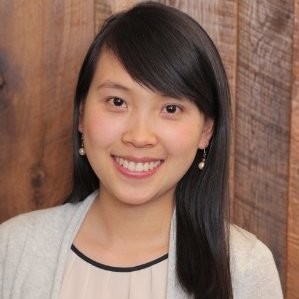 Before becoming the special assistant to Atlantic’s VP of Programs, Khanh Phan was a program associate
Before becoming the special assistant to Atlantic’s VP of Programs, Khanh Phan was a program associate 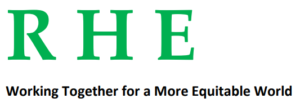 with Atlantic’s Population Health program. Upon conclusion of her employment with Atlantic, and with her fluent Vietnamese, Khanh became a fellow with Resources for Health Equity. RHE’s mission is to advance the fundamental rights to health and well-being of vulnerable and disadvantaged populations in Southeast Asia through supporting and nurturing primary health care system innovations, strengthening local capacity for community development, and bridging available resources with local needs. While the work is mainly carried out in Southeast Asia, particularly Viet Nam, a key element of RHE’s operations involves enlisting crucial financial and programmatic partnerships with leading public health champions and donors in the United States. As RHE’s regional coordinator, based in in New York, Khanh helped its CEO establish its presence and operations in the U.S. and virtually. She oversaw all of RHE’s grant making and grant receiving activities, including working with RHE staff to create annual workplans with key program deadlines, facilitating internal review processes and coordinating materials and information for external grant applications. She managed RHE’s database for grant-receiving, grant-making and consultancies and the related budgets. She also managed special initiatives, including serving as a liaison for the $50-million, 20-year Health Equity Initiative to train key health and equity leaders for Southeast Asia. Khanh managed the development of RHE’s digital platform and donations portfolio and represented RHE’s work in North America, building relationships with grantees and partners.
with Atlantic’s Population Health program. Upon conclusion of her employment with Atlantic, and with her fluent Vietnamese, Khanh became a fellow with Resources for Health Equity. RHE’s mission is to advance the fundamental rights to health and well-being of vulnerable and disadvantaged populations in Southeast Asia through supporting and nurturing primary health care system innovations, strengthening local capacity for community development, and bridging available resources with local needs. While the work is mainly carried out in Southeast Asia, particularly Viet Nam, a key element of RHE’s operations involves enlisting crucial financial and programmatic partnerships with leading public health champions and donors in the United States. As RHE’s regional coordinator, based in in New York, Khanh helped its CEO establish its presence and operations in the U.S. and virtually. She oversaw all of RHE’s grant making and grant receiving activities, including working with RHE staff to create annual workplans with key program deadlines, facilitating internal review processes and coordinating materials and information for external grant applications. She managed RHE’s database for grant-receiving, grant-making and consultancies and the related budgets. She also managed special initiatives, including serving as a liaison for the $50-million, 20-year Health Equity Initiative to train key health and equity leaders for Southeast Asia. Khanh managed the development of RHE’s digital platform and donations portfolio and represented RHE’s work in North America, building relationships with grantees and partners.
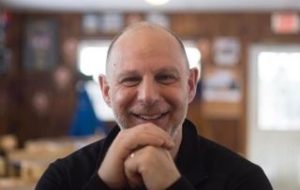 As Atlantic’s Global Head of Strategic Learning and Evaluation, Ben Kerman supported the design and i
As Atlantic’s Global Head of Strategic Learning and Evaluation, Ben Kerman supported the design and i mplementation of Atlantic’s final phase learning agenda and grant making. He was interested in pursuing a post-Atlantic fellowship, he said, to “fill out his skill set”: having worked at several national foundations, he wanted the experience of working at an entity that both sought funding and made grants. Knowing he would be relocating to upstate New York, Ben secured a fellowship with the Community Foundation for Greater Buffalo, with its 400 active clients and $500 million in charitable assets. CFGB reported that Ben’s fellowship contributed to their mission of “connecting people, ideas and resources to improve lives in Western New York” in several important ways. First, Ben provided senior level assistance to the President/CEO by assisting her in leading their five-year strategic review and planning process. His primary focus was on integrating information and articulating strategic options for the Foundation based on community needs, grantee results, the Foundation’s influence, and operational performance. The strategic plan was intended to set the course for the high level priorities the Foundation wants to accomplish over the next five years. Ben’s other significant accomplishment was to assist with the launch and initial operational phase of the Western New York Impact Investing Fund — the culmination of a three-year initiative to stimulate and broker social investments as well as expand partnerships with other non-local funders interested in impact investment in Western New York. Ben also agreed to add a major project to his workplan, which was assisting the Foundation with the submission of an evaluation report on the effectiveness of the Foundation’s work in racial equity impact assessment training.
mplementation of Atlantic’s final phase learning agenda and grant making. He was interested in pursuing a post-Atlantic fellowship, he said, to “fill out his skill set”: having worked at several national foundations, he wanted the experience of working at an entity that both sought funding and made grants. Knowing he would be relocating to upstate New York, Ben secured a fellowship with the Community Foundation for Greater Buffalo, with its 400 active clients and $500 million in charitable assets. CFGB reported that Ben’s fellowship contributed to their mission of “connecting people, ideas and resources to improve lives in Western New York” in several important ways. First, Ben provided senior level assistance to the President/CEO by assisting her in leading their five-year strategic review and planning process. His primary focus was on integrating information and articulating strategic options for the Foundation based on community needs, grantee results, the Foundation’s influence, and operational performance. The strategic plan was intended to set the course for the high level priorities the Foundation wants to accomplish over the next five years. Ben’s other significant accomplishment was to assist with the launch and initial operational phase of the Western New York Impact Investing Fund — the culmination of a three-year initiative to stimulate and broker social investments as well as expand partnerships with other non-local funders interested in impact investment in Western New York. Ben also agreed to add a major project to his workplan, which was assisting the Foundation with the submission of an evaluation report on the effectiveness of the Foundation’s work in racial equity impact assessment training.
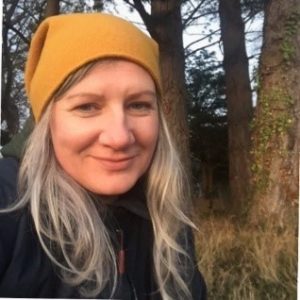 Natalie Kilroy was a Grants Manager in Atlantic’s Dublin office, and had prepared for her eventual departure from Atlantic
Natalie Kilroy was a Grants Manager in Atlantic’s Dublin office, and had prepared for her eventual departure from Atlantic 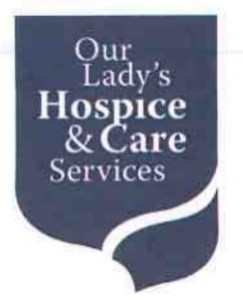 several years in advance by retraining as a physical therapist with a focus on older adults and aging, one of Atlantic’s core areas of funding. She was able to secure a fellowship which utilized both of these skill sets at Our Lady’s Hospice in Harold’s Cross, Dublin, a 200-bed facility providing specialist services from rehabilitation to end-of-life care, and Ireland’s largest specialist palliative care provider. Although she served as a physio assistant in OLH’s rheumatology department, gaining valuable work experience in a healthcare setting, she also was able to use her grants management and technical skills to OLH’s benefit. Natalie helped streamline OLH’s mandatory training spreadsheet and its associated processes, which enhanced efficiency for the OLH staff tasked with maintaining and updating those records. In addition, using her extensive database skills, she reviewed the data entry of patient statistics, preparing a guide for report preparation which became a valuable resource for new staff. Natalie continued employment with OLH on a part-time basis for several years after the conclusion of her post-Atlantic fellowship.
several years in advance by retraining as a physical therapist with a focus on older adults and aging, one of Atlantic’s core areas of funding. She was able to secure a fellowship which utilized both of these skill sets at Our Lady’s Hospice in Harold’s Cross, Dublin, a 200-bed facility providing specialist services from rehabilitation to end-of-life care, and Ireland’s largest specialist palliative care provider. Although she served as a physio assistant in OLH’s rheumatology department, gaining valuable work experience in a healthcare setting, she also was able to use her grants management and technical skills to OLH’s benefit. Natalie helped streamline OLH’s mandatory training spreadsheet and its associated processes, which enhanced efficiency for the OLH staff tasked with maintaining and updating those records. In addition, using her extensive database skills, she reviewed the data entry of patient statistics, preparing a guide for report preparation which became a valuable resource for new staff. Natalie continued employment with OLH on a part-time basis for several years after the conclusion of her post-Atlantic fellowship.
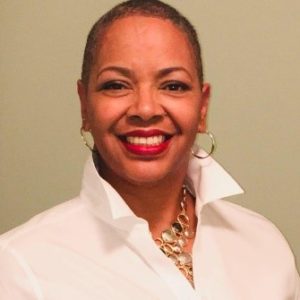 Stacey Easterling joined longtime Atlantic grantee Encore.org, at Encore’s New York City location. A former Program
Stacey Easterling joined longtime Atlantic grantee Encore.org, at Encore’s New York City location. A former Program  Executive on Atlantic’s Ageing program team, Stacey says, “I wanted to step out of the philanthropy side, the funder side, and return to the non-profit world, to gain more insight into the grantee side. As funders, we can lose perspective on what it’s like to be a grantee and having this insight can make us better grant makers and leaders in the philanthropic community.” Encore.org is dedicated to creating new ideas and models to leverage the skills and talents of experienced older adults to improve communities and the world. As the Director of Program Growth and Development, Stacey helped plan, design and develop a five-year campaign, Generation2Generation, supporting “encore” adults (50 years and older) in improving the lives of children and youth, another of Atlantic’s core programmatic areas. Her responsibilities included hiring staff, knowledge management, and establishing working relationships with youth development organizations in the year before the 2016 campaign launch.
Executive on Atlantic’s Ageing program team, Stacey says, “I wanted to step out of the philanthropy side, the funder side, and return to the non-profit world, to gain more insight into the grantee side. As funders, we can lose perspective on what it’s like to be a grantee and having this insight can make us better grant makers and leaders in the philanthropic community.” Encore.org is dedicated to creating new ideas and models to leverage the skills and talents of experienced older adults to improve communities and the world. As the Director of Program Growth and Development, Stacey helped plan, design and develop a five-year campaign, Generation2Generation, supporting “encore” adults (50 years and older) in improving the lives of children and youth, another of Atlantic’s core programmatic areas. Her responsibilities included hiring staff, knowledge management, and establishing working relationships with youth development organizations in the year before the 2016 campaign launch.
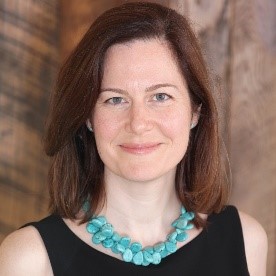 Annmarie Benedict, a former Senior Program Executive at Atlantic, hoped that her fellowship at the
Annmarie Benedict, a former Senior Program Executive at Atlantic, hoped that her fellowship at the 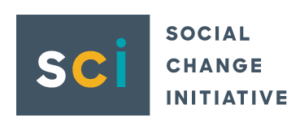 Belfast-based Social Change Initiative would serve as a bridge to working internationally and in the migration sector, which she had only experienced as a grant maker. SCI was designed, in part, to continue Atlantic’s programmatic objectives in Reconciliation and Human Rights. In 2015, the year SCI was created, Europe saw the largest influx of migrants and refugees in decades. It was therefore a natural progression for SCI to expand its migration program to address the increased and urgent needs of the sector, with a focus on advocacy and activism.
Belfast-based Social Change Initiative would serve as a bridge to working internationally and in the migration sector, which she had only experienced as a grant maker. SCI was designed, in part, to continue Atlantic’s programmatic objectives in Reconciliation and Human Rights. In 2015, the year SCI was created, Europe saw the largest influx of migrants and refugees in decades. It was therefore a natural progression for SCI to expand its migration program to address the increased and urgent needs of the sector, with a focus on advocacy and activism.
As part of her fellowship, Annmarie set up a project to sharpen the narrative change practice of migration NGOs in France, Germany, Italy and Greece – a project seeded by an Atlantic grant. The Migration Narrative Project identified partners in each country that could build communications and narrative capacity in the NGO and civil society sectors and create new communications content aimed at reaching the ‘middle’ of the population – those who do not hold extreme views, either positive or negative, about migration. Annmarie negotiated contracts, including funding support, with local groups to deliver content and capacity building programs; built in-country alliances with NGOs and funders, creating a community of practice and support for this new way of communicating about migration and migrants; and initiated a transnational network where country partners could share learning and trade secrets and bolster each other’s work. Following her fellowship, SCI asked Annmarie to stay on for an additional two years in order to complete her project.
 Maria Pignataro Nielsen, Atlantic’s former Chief Human Resources Officer wrote this piece in 2021.
Maria Pignataro Nielsen, Atlantic’s former Chief Human Resources Officer wrote this piece in 2021.
Featured Resources and News
-
Retaining an Engaged Staff to the End
This post by Maria Pignataro Nielsen, Atlantic's Chief Human Resources Officer, is part of GrantCraft's "Making Change by Spending Down" series. Although Atlantic is often referred to as a “spend down” foundation, we think of ourselves as a limited life foundation, with our final years…
Resource type: News
-
Operating for Limited Life
An in-depth look at The Atlantic Philanthropies' limited life journey.
Resource type: Insight